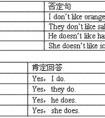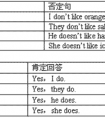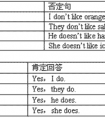词汇运用。1. Amy has vegetables every day. But now she _________ (eat) a hamburger. 2. If you want to _________ (health), have the food on these _________ (s-七年级英语
These caves collapse easily in heavy rains.下大雨时这些洞穴容易倒塌。
The children are playing on the sands.孩子们在沙滩上玩。
3.某些表示饮料名称的物质名词往往以复数形式代替单位词。这类词有:coffees,teas等。例如:
The waitress has served twenty teas since four o’clock.从四点起,这位女服务员已上了二十份午茶。
Send two coffees and three lemonades to the room.请将两杯咖啡和三杯柠檬汁送到这个房间。
4.某些物质名词又是个体名词,它们的复数形式表示与原来个体完全不同的东西。这类词有:
glasses(眼镜、玻璃杯), irons(熨斗),coppers(铜币),papers(文章,
证件)等。例如:
She is always wearing glasses.她总是戴着眼镜。
He wrote many papers for the newspaper.他为这份报纸写过许多文章。
三、抽象名词的复效形式的含义
1.congratulations, regards, respects,thanks,wishes,apologies等复数形式用来
表示祝愿、礼貌和客气。例如:
It’s your birthday today.Congratulations!今天是你的生日,恭喜你!
You’ve given me so much help.Thanks a lot.你给了我很多帮助,非常感谢。
2.smiles, pities, fears, hopes, kindnesses复数形式表示强调。例如:
He was all smiles.他满脸笑容。
It is a thousand pities.非常遗憾。
I have received many kindnesses from him.他对我非常好。
Great fears are felt for the safety of the missing climbers.人们对失踪的登山者的安全权为担忧。
3.抽象名词具体化。有些抽象名词的复数形式表示具体的事物,如:
cares(烦人的事),anxieties(令人着急的事),worries(使人发愁的事),difficulties(难题),joys(使人高兴的事),failures(失败的事,失败的人),friendships(表示友谊的事例)等。例如:
After listening to his advice,she had no more anxieties.听了他的建议,她不再有发愁的事了。
His friendships never last very long.他与别人的交情从来都不长久。
After many failures,they finally succeeded.经过多次失败之后,他们最后成功了。
4.某些抽象名词在某种场合是个体名词,它们的复数形式表示与该个体名词不同的意义,如:
youths(男青年、小伙子), relations(亲属), beauties(美人),necessities(必需品)等。例如:
Twenty youths attended the meeting yesterday.二十个男青年出席了昨天的会议。
All his poor relations came to spend their holidays at his home.他所有的穷亲戚都在他家过节。
考点名称:序数词
- 序数词:
是数词的一种,主要在英语语法中讲到,在汉语中表示为“第几”。如:first, second, third, fourth 序数词的读法与写法:
序数词写法:
1 first ;2 second ; 3 third ;4 fourth ; 5 fifth ;
6 sixth ;7 seventh; 8 eighth;9 ninth ;10 tenth ;
11 eleventh ;12 twelfth ;13; thirteenth ;14 fourteenth;15 fifteenth
16 sixteenth ;17 seventeenth ;18 eighteenth;19 nineteenth;
20 twentieth ;30 thirtieth ;40 fortieth ;50 fiftieth ;60 sixtieth ;70 seventieth;80 eightieth ; 90 ninetieth多位序词:
由基数词的形式变结尾部分为序数词形式来表示。
one hundred and twenty-first 第一百二十一
one thousand three hundred and twentieth 第一千三百二十
two hundred and fifty-second 第二百五十二缩写:
有时,序数词可以用缩写形式来表示。主要缩写形式有:
first——1st ;second——2nd ;third——3rd; fourth——4th ;sixth——6th ;twentieth——20th;twenty-third——23rd
其中lst,2nd,3rd为特殊形式,其它的都是阿拉伯数字后加上th。序数词前不加the的情况:
在英语中,使用序数词时前面要加定冠词 the,但是,在下面的情况下则不加 the:
1.当序数词前有形容词性物主代词或名词所有格修饰时,序数词前不用 the。
Mother was my first teacher in my life.妈妈是我生命中的第一个老师。
Tom is Lily's third boyfriend. 汤姆是莉莉的第三个男朋友。
2.当表达分数时,序数词前不用 the。
One fifth of the students here are from the country. 这儿1/5的学生来自农村。
Three fourths of the students here are from the country. 这儿的3/4的学生来自农村。
3.当表达“又一,再一”时,序数词前不用 the,但可加不定冠词。
Please give me a second chance. 请再给我一次机会。
The poor woman had a third baby. 那个可怜的妇女又生了第三个宝宝。
4.当表达“年月日”时,尤其在朗读时,序数词前要加 the。
He was born on June 6th, 1974. 他出生在1974年6月6日。
5.当序数词在句中作状语时,序数词前不用 the。
Who got there second? 谁第二个到那儿的?
I finished the work first. 我最先完成那项工作。
6. 当表达考试(比赛等)中获得的名次时,序数词前不用 the。
She stands first in her class. 她在班上成绩排名第一。基数词变序数词的口诀:
基变序,有规律,词尾加上-th。
一,二,三,特殊记,词尾字母t,d,d。
八去t,九除e,ve要用f替,ty将y变成i,th前面有个e。
若是碰到几十几,前用基来后用序。
整十基数变序数,先把ty变成tie,要是遇上两位数,十位基数,个位序,th最后加上去。
或者一,二,三变字体;th从4上起;8加h,9减e;用f 代ve;ty变为tie。序数词的语法功能及用法:
序数词在句中可作主语、宾语、定语和表语。
The second is what I really need. 第二个是我真正需要的。(作主语)
He choose the second. 他挑选了第二个。(作宾语)
We are to carry out the first plan. 我们将执行第一个计划。(作定语)
She is the second in our class.在我们班她是第二名。(作表语)
注:序数词在使用时,通常前面要加定冠词 the;但是如果序数词前出现不定冠词a或an时,则表示“再—”,“又—”。
We'll go over it a second time. 我们得再念第二遍。
We've tried it three times.Must we try it a fourth time? 我们已经试过三遍了,还必须试一次(第四次)吗?
表示顺序的序数词
只需将基数词放在它所修饰的名词之后即可,不需要添加定冠词。
the first lesson——Lesson One the fifth page——Page 5(five)
the twenty-first room——Room 21(twenty-one)
考点名称:不定代词
- 不定代词:
即不指明代替任何特定名词或形容词的代词。
初中常用不定代词有:
some(something,somebody,someone),any(anything,anybody,anyone), no(nothing,nobody,no one),
every(everything,everybody,everyone,),all,each,both,much,many,(a)little,(a)few,other(s),
another,none,one,either, neither等。一般来讲,修饰不定代词的词要置于其后。 不定代词用法例举:
①一般用于肯定句中的不定代词:some, someone, somebody, something
例如:They can speak some Japanese.
②一般用于否定句、疑问句和条件句中的不定代词:any, anyone, anybody, anything
例如:Is there anyone at home?
③一般用于句中表示否定意义的不定代词:no, no one, nobody, nothing
例如:I have no watch.
There is nothing wrong with the machine.
④不定代词one指代可数名词,既可指人,亦可指物,它可以代替上文中出现的单数可数
名词,指代复数名词时可以用ones。
例如:I do not have a pen, can you lend me one?
I like small cars better than large ones.
⑤none通常只用作名词,在句中作主语、宾语等。意为“没有任何(人或物)”,既可指人,亦可指物。
none后常跟of短语,其后用复数可数名词或不可数名词。
例如:None of them knows the answer to the question.
⑥both, all
both指两个人、物或群体;
all指三个以上的人、物或群体或泛指一切事物。
例如:My parents are both teachers.
All of my friends are football fans.
⑦every, each
each一般用于指两个或两个以上的人或物,侧重个别;
every用于指三个或三个以上的人或物,侧重全体。而且each所指对象在上下文中已十分明确。
例如:Each student went to see that films. (学生至少二人)
Every student went to the park.(学生至少三人)
⑧other, the other, others, the others, another
- 最新内容
- 相关内容
- 网友推荐
- 图文推荐
| [家长教育] 孩子为什么会和父母感情疏离? (2019-07-14) |
| [教师分享] 给远方姐姐的一封信 (2018-11-07) |
| [教师分享] 伸缩门 (2018-11-07) |
| [教师分享] 回家乡 (2018-11-07) |
| [教师分享] 是风味也是人间 (2018-11-07) |
| [教师分享] 一句格言的启示 (2018-11-07) |
| [教师分享] 无规矩不成方圆 (2018-11-07) |
| [教师分享] 第十届全国教育名家论坛有感(二) (2018-11-07) |
| [教师分享] 贪玩的小狗 (2018-11-07) |
| [教师分享] 未命名文章 (2018-11-07) |






